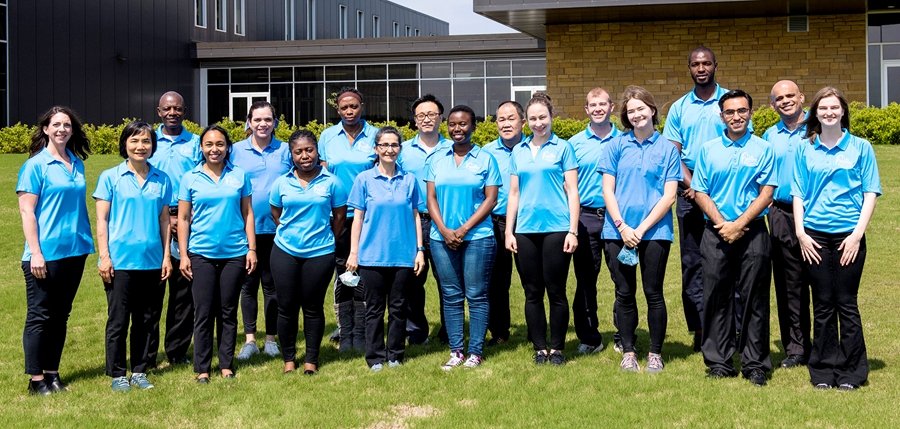The University of Arkansas Rice Processing Program is offering a distance education course on the basics of rice processing for international students at the University of Graz and Technical University of Graz in Austria.
The Rice Processing Program is part of U of A's Department of Food Science in the Dale Bumpers College of Agricultural, Food and Life Sciences.
The eight-lecture short course in March reviews the impact of rice production, postharvest treatment and processing on rice quality, including discussions of green technologies and environmental impact. The instructors are Griffiths Atungulu, associate professor of grain processing engineering in food science and interim director of the UARPP; Paul Counce, professor of rice physiology in the Department of Crop, Soil and Environmental Sciences; Andy Proctor, University Professor emeritus of lipid chemistry in food science; Han-Seok Seo, associate professor of sensory science in food science; and Ya-Jane Wang, professor of carbohydrate chemistry in food science. The short course is being coordinated at the University of Graz by professor Anton Huber.
"It is hoped that this venture will encourage food science and food engineering student exchange between Graz universities and the University of Arkansas," said Proctor. "In particular, we hope Graz students will be attracted to spend a semester conducting rice research in Fayetteville. Belgian students from the University of Gent regularly visit the U of A to conduct food science research with food science department faculty and we hope to attract Austrian students to also participate in this exchange."
The development of the short course follows a trip to Graz in 2019 by Atungulu, Proctor and Luke Howard, professor of food chemistry in food science.
The Department of Food Science, Bumpers College and the U of A have a history of working with Graz faculty since 2004 when Proctor directed two federal Atlantis programs (2004-13) involving Graz student exchanges. He expanded cooperation during his Fulbright-Austria sabbatical working with professor Erich Leitner at Technical University of Graz when the pair developed an annual international summer short course. Last fall, Leitner organized a food science analysis short course with Seo at the U of A campus.
The Rice Processing Program conducts basic and applied research to improve the efficiency and effectiveness of current processing operations, as well as provides information to be utilized in the development of new products and processes. The goal of UARPP is to enhance the quality and value of rice and rice products. The research scope ranges from property characterization at harvest to assessment of consumer preferences of processed rice. Areas emphasized include: preharvest property characterization, drying, storage, milling, quality assessment, cereal chemistry and sensory analysis of rice and rice products.
About the Dale Bumpers College of Agricultural, Food and Life Sciences: Bumpers College provides life-changing opportunities to position and prepare graduates who will be leaders in the businesses associated with foods, family, the environment, agriculture, sustainability and human quality of life; and who will be first-choice candidates of employers looking for leaders, innovators, policy makers and entrepreneurs. The college is named for Dale Bumpers, former Arkansas governor and longtime U.S. senator who made the state prominent in national and international agriculture. For more information about Bumpers College, visit our website, and follow us on Twitter at @BumpersCollege and Instagram at BumpersCollege.
About the University of Arkansas: As Arkansas' flagship institution, the U of A provides an internationally competitive education in more than 200 academic programs. Founded in 1871, the U of A contributes more than $2.2 billion to Arkansas' economy through the teaching of new knowledge and skills, entrepreneurship and job development, discovery through research and creative activity while also providing training for professional disciplines. The Carnegie Foundation classifies the U of A among the top 3% of U.S. colleges and universities with the highest level of research activity. U.S. News & World Report ranks the U of A among the top public universities in the nation. See how the U of A works to build a better world at Arkansas Research News.
Topics
Contacts
Robby Edwards, director of communications
Dale Bumpers College of Agricultural, Food and Life Sciences
479-575-4625, robbye@uark.edu
